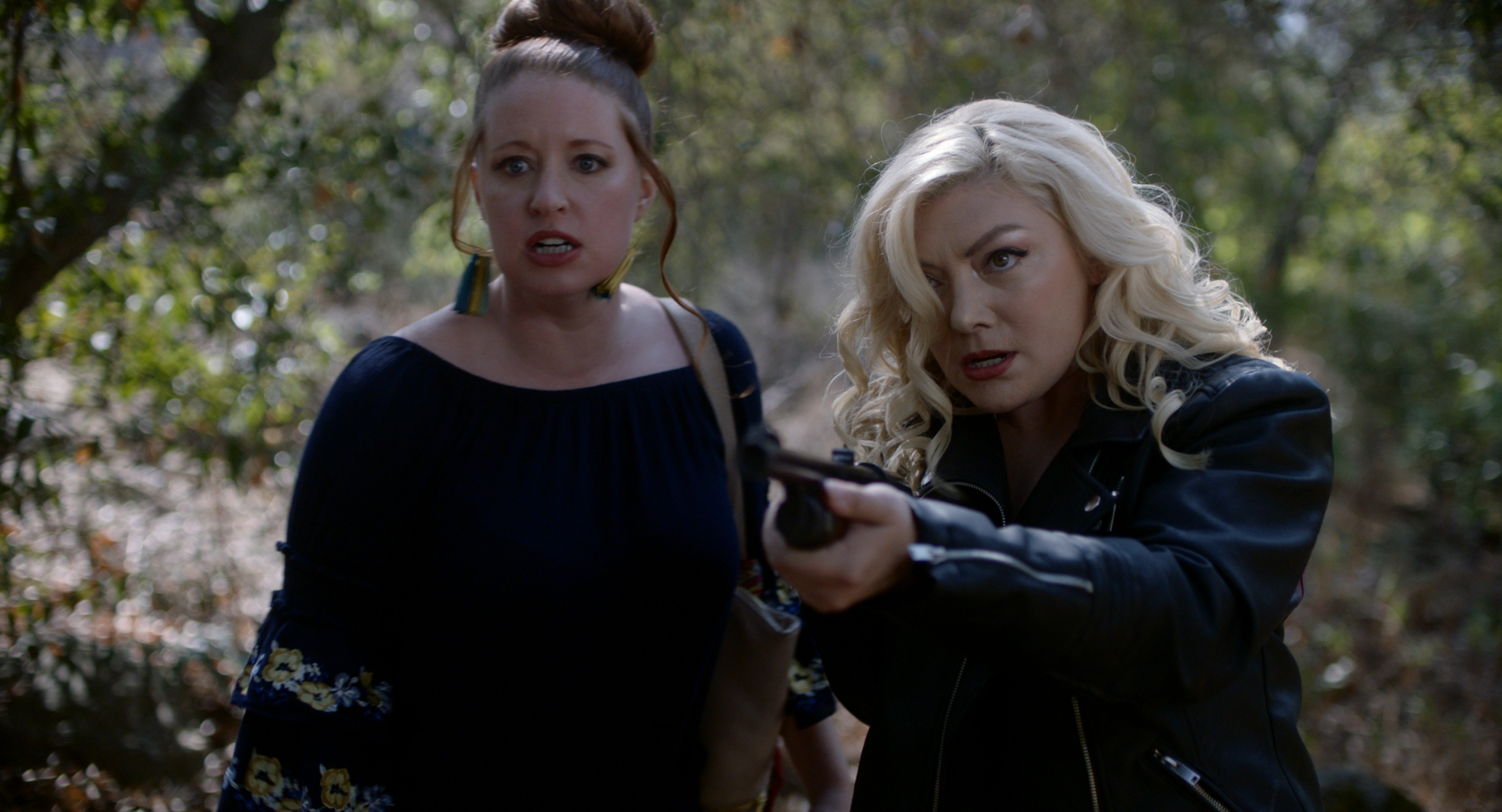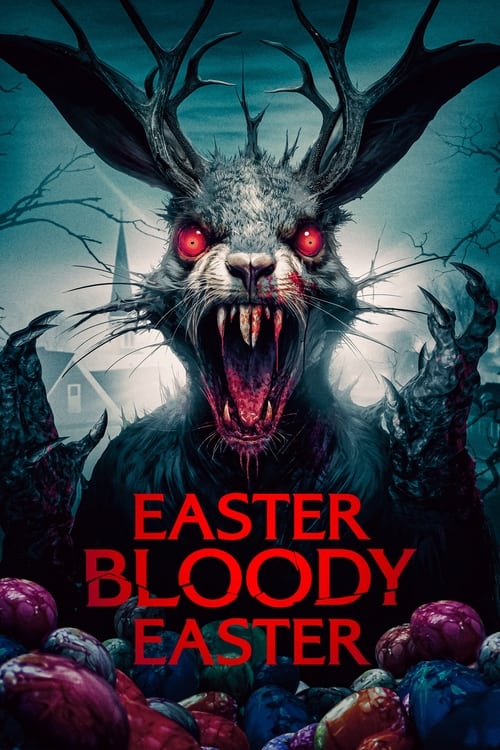Easter Bloody Easter – Film Review
Published March 28, 2024

Easter, a time synonymous with rebirth and chocolate bunnies, gets a horrific twist in Easter Bloody Easter, a film that ambitiously attempts to redefine the holiday through a lens smeared with blood and dark comedy. Directed by Diane Foster, with a script penned by Allison Lobel, the movie seeks to merge the quaint charm of small-town America with the raw, unfiltered terror of a mythical creature gone rogue. However, despite its unique premise and occasional moments of brilliance, Easter Bloody Easter stumbles more than it scares, delivering a half-baked narrative that’s as confusing as the folklore it tries to exploit.
At the heart of the story is Jeanie Cooper, played by Diane Foster, who finds herself the unexpected heroine in a battle against a demonic Jackalope and its legion of malevolent bunnies. The supporting cast, including Kelly Grant, Lobel, Zuri Starks, and D’Andre Noiré, contribute to the ensemble with varying degrees of success, each trying to navigate the chaos that has besieged their once-peaceful town.
The premise, though intriguing, is perhaps the film’s first stumbling block. The fusion of Easter iconography with elements of horror creates an awkward juxtaposition that the film struggles to balance. Instead of a seamless integration of horror and dark comedy, Easter Bloody Easter often feels like a genre identity crisis, unsure whether to fully embrace its B-movie potential or strive for something more profound.
The screenplay, crafted by Allison Lobel, attempts to weave a tapestry of intrigue, humor, and horror but ends up tangled in its ambitions. Characters are thinly written, their motivations as murky as the film’s poorly lit scenes. Dialogues, which aim for wit and gravitas, frequently land with the subtlety of a sledgehammer, undermining moments that could have been genuinely suspenseful or moving.
Diane Foster, pulling double duty as both lead actress and director, delivers a performance that, while earnest, lacks the depth required to anchor the film. As Jeanie Cooper, Foster battles not just demonic bunnies but also the script’s limitations, her character’s development feeling as rushed as the film’s haphazard editing. The supporting cast does what they can with the material, but their performances often veer into caricature, further detracting from the film’s attempt at a cohesive narrative.
Visually, Easter Bloody Easter is a mixed basket. There are fleeting moments of genuine visual flair – a testament to the film’s cinematographer – that capture the eerie beauty of the small town turned battleground. However, these instances are overshadowed by inconsistent special effects that fluctuate between laughably amateurish and surprisingly decent. The Jackalope, central to the film’s horror element, is rendered with an inconsistency that robs the creature of any real menace, undermining the film’s efforts to instill terror.
The thematic ambition of the film – to explore the duality of tradition and terror – is commendable but poorly executed. The allegory of the Jackalope, meant to symbolize the darker underbelly of folklore and by extension, societal norms, is lost amidst a plot that prefers shock value over substance. This superficial approach extends to the film’s commentary on small-town dynamics, which is as nuanced as a bunny hop.
Moreover, the film’s pacing is as erratic as its antagonist’s rampage. Moments that should build tension are rushed, while scenes that contribute little to the plot or character development meander aimlessly. This inconsistency in pacing, coupled with a score that can only be described as jarringly anachronistic, leaves the viewer disoriented, struggling to find a rhythm in the chaos.
The humor, a potentially saving grace for a film teetering on the edge of camp, is hit or miss. For every joke that lands, there are several that do not, and the comedy often feels forced, detracting from the film’s horror elements rather than complementing them. This imbalance makes Easter Bloody Easter a confusing watch, the viewer left unsure whether to laugh, scream, or simply shake their head in disbelief.
Easter Bloody Easter is a film with an identity crisis. It’s a production that wanted to be both a commentary on and a caricature of horror, but fails to fully realize either. The film’s attempt to stitch together elements of folklore, horror, and comedy results in a Frankenstein’s monster of a movie that is less than the sum of its parts. Its ambition is evident, and for that, it deserves some credit. Yet, ambition without execution results in a product that is hard to recommend. For fans of niche horror or B-movies, there might be some aspects to enjoy, like spotting potential in its raw and unpolished edges.
